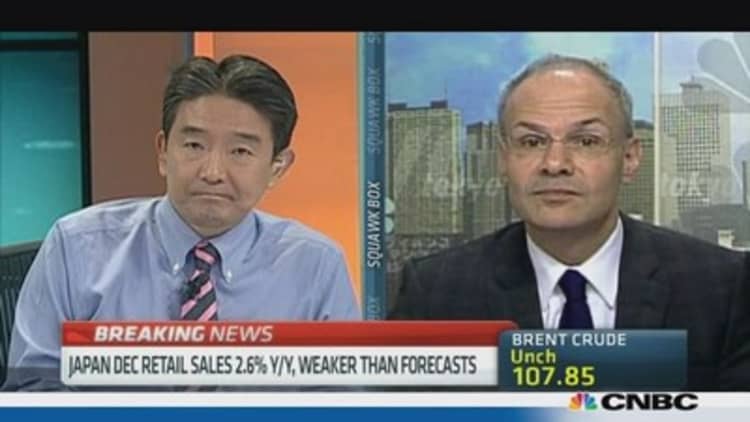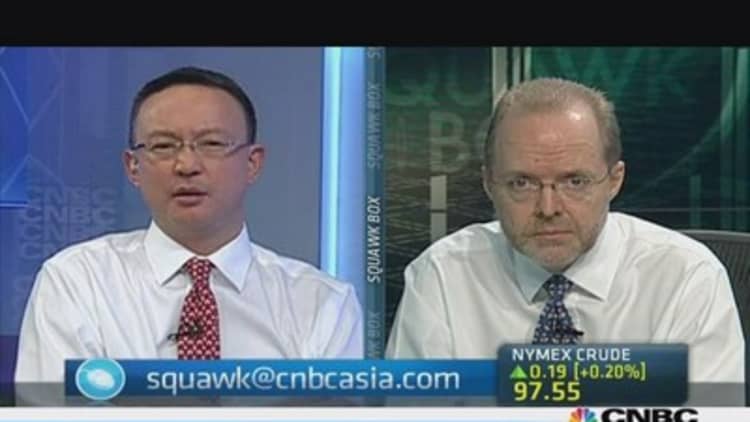Better-than-expected inflation data out of Japan has put the central bank's 2 percent inflation target well within sight, some analysts told CNBC.
Japan reported a 1.3 percent on-year rise in its nationwide core consumer price index (CPI) for December on Friday, above expectations for a 1.2 percent rise and marking a fresh five-year high. Core-core CPI excluding food and energy prices rose 0.7 percent on year in December, matching its August 1998 high.
(Read more: Will 2% inflation be enough for Japan?)
"Two years ago would you ever have expected to see a number like that, nor frankly one year ago?" said Ed Rogers, CEO & CIO at Rogers Investment Advisors.
"The idea of a 1.3 percent inflation number would have been considered ludicrous... The point is, this continues to highlight the directionality in favor of Abenomics," he added.

Meanwhile analysts at Nikko Asset Management were also encouraged by the figure.
(Read more: Japan Inc, is your 'animal spirit' calling?)
"In Japan, inflation is moving strongly upward... there are also strong signs that this is flowing through to retail prices," said analysts at Nikko Asset Management in a note.
The healthy number should give Prime Minister Shinzo Abe a boost, proving his ambitious economic reform plan involving aggressive monetary easing, fiscal stimulus and structural reform seems to be paying off. Policy makers hope to drag Japan's economy out of decades of deflation, and have pledged to increase inflation to 2 percent in two years.
More bearish Japan commentators, however, are quick to flag the headwinds facing the world's number three economy this year, namely an upcoming hike in the sales tax scheduled for April, and doubts over Abe's commitment to structural reform, which many fear will derail progress made on economic growth and inflation so far.
(Read more: Emerging markets to pay the price if Abenomics fails?)
"In our view, BOJ and the government need to take additional measures to bolster consumer confidence," said Takuji Okubo, principal and chief economist at Japan Macro Advisors, told CNBC.

"Otherwise, consumption is almost certain to falter from April 2014 on, bringing down with it the hope of sustained reflation in Japan," he added.
Rogers told CNBC he thought the fears over the sales tax hike were overblown, however, and drew parallels between the level of panic over the sales tax, with the Y2K phenomenon - a computer bug which meant all computers were not ready to switch from 1999 to 2000, which many feared would trigger electronic systems to crash.
"I'm really starting to think that the increase in the sales tax is going to be something like a Y2K issue...where everybody was screeching about it being the end of the world," said Rogers.
(Read more: Is the Japan story getting threadbare?)
"It's [the tax hike] not quite much ado about nothing, because it will have an impact, but the hard data impact of money spent will be counteracted by two things. Firstly, an increase in wages, and secondly, the Bank of Japan stands ready and able to put liquidity into the system if it looks like the sales tax were to create a significant contraction," he added.
Japan's central bank has held its asset purchases steady since it first kicked them off last April, but many forecasters see it upping the ante in April this year.
— By CNBC's Katie Holliday: Follow her on Twitter @hollidaykatie


